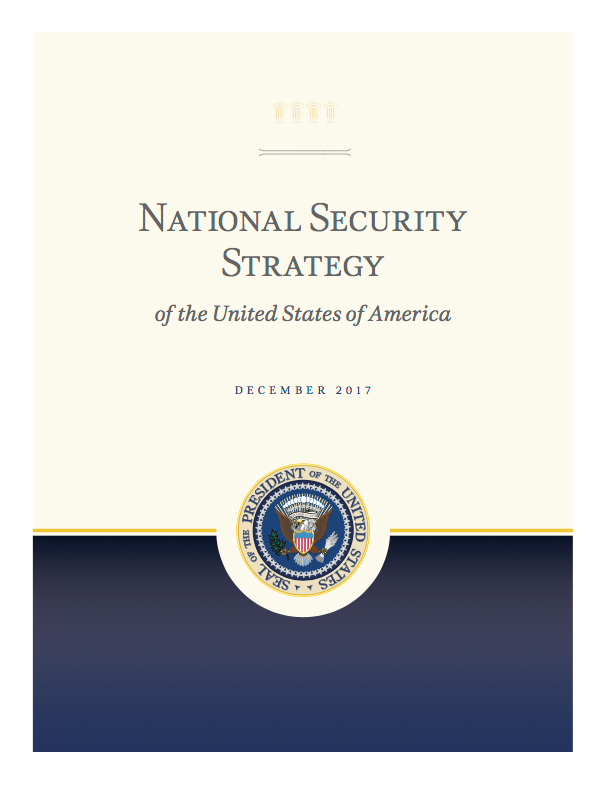BBG Watch Commentary
While the dysfunctional and mismanaged Broadcasting Board of Governors (BBG) federal agency in charge of the Voice of America (VOA), Radio Free Europe / Radio Liberty (RFE/RL) and several other U.S. taxpayer-funded ($740 million FY 2017) U.S. media outreach outlets was not specifically mentioned in the Trump administration National Security Strategy document, the wording in the chapter on “Information Statecraft” can only be seen as a powerful rebuke of the current BBG management and the agency’s current operations. The document also includes a promise of reforming U.S. information outreach.
“U.S. efforts to counter the exploitation of information by rivals have been tepid and fragmented. U.S. efforts have lacked a sustained focus and have been hampered by the lack of properly trained professionals. The American private sector has a direct interest in supporting and amplifying voices that stand for tolerance, openness, and freedom.”
The promise of reforms is included under the heading UPGRADE, TAILOR, AND INNOVATE. It should be of particular interest to current Broadcasting Board of Governors (BBG) executives, managers and other employees. The agency is still being managed by Obama administration holdover officials, including BBG CEO John F. Lansing, VOA director Amanda Bennett and her deputy Sandy Sugawara.
UPGRADE, TAILOR, AND INNOVATE: We will reexamine legacy delivery platforms for communicating U.S. messages overseas. We must consider more cost-effective and efficient ways to deliver and evaluate content consistent with U.S. national security interests.
Criticism of the Broadcasting Board of Governors has been bipartisan. In 2013, the then Secretary of State Hillary Clinton, herself an ex officio member of the BBG Board, called the agency “practically defunct.” It continues to be rocked by scandals and dismal employee morale under its current holdover management.
National Security Council staff has seen some of the BBG Watch reports and commentaries on mismanagement at the Broadcasting Board of Governors even before the latest reporting on how the Voice of America and Russia’s propaganda channel RT were the only ones among major international broadcaster to post on social media multiple raw footage videos showing American and Israeli flags being burned by demonstrators protesting against President Trump’s decision on Jerusalem. While BBC, Germany’s Deutsche Welle (DW) and other Western media also reported on these demonstrations, VOA was alone (not counting RT) in posting about half a dozen of raw footage videos with anti-American and anti-Jewish images and slogans without any additional commentary, context or an attempt to balance these videos with different points of view. These VOA videos, however, received a record number of views on Facebook which suggests that they reinforce confirmation bias and extremist views.
SEE: Most Popular Voice of America Videos December 2017: 3.4M Views of Burning Israeli and U.S. Flags, BBG Watch, December 18, 2017.

The new National Security Strategy was written before this latest reporting from BBG Watch, but National Security Council staff had seen earlier BBG Watch reports on the Broadcasting Board of Governors and programming failures, particularly at the Voice of America and to some degree at Radio Free Europe / Radio Liberty.
The need for reforming the Broadcasting Board of Governors was also reflected in a statement issued by House Foreign Affairs Committee Chairman Ed Royce (R-CA) on on the administration’s national security strategy.
“A revitalized U.S. broadcasting system is critical to countering the spread of terror, promoting human rights, and checking Putin’s aggression,” Chairman Royce said in his statement.
###
National Security Strategy of the United States of America
December 2017
Information Statecraft
America’s competitors weaponize information to attack the values and institutions that underpin free societies, while shielding themselves from outside information. They exploit marketing techniques to target individuals based upon their activities, interests, opinions, and values. They disseminate misinformation and propaganda.
Risks to U.S. national security will grow as competitors integrate information derived from personal and commercial sources with intelligence collection and data analytic capabilities based on Artificial Intelligence (AI) and machine learning. Breaches of U.S. commercial and government organizations also provide adversaries with data and insights into their target audiences.
China, for example, combines data and the use of AI to rate the loyalty of its citizens to the state and uses these ratings to determine jobs and more. Jihadist terrorist groups continue to wage ideological information campaigns to establish and legitimize their narrative of hate, using sophisticated communications tools to attract recruits and encourage attacks against Americans and our partners.
Russia uses information operations as part of its offensive cyber efforts to influence public opinion across the globe. Its influence campaigns blend covert intelligence operations and false online personas with state-funded media, third-party intermediaries, and paid social media users or “trolls.”
U.S. efforts to counter the exploitation of information by rivals have been tepid and fragmented. U.S. efforts have lacked a sustained focus and have been hampered by the lack of properly trained professionals. The American private sector has a direct interest in supporting and amplifying voices that stand for tolerance, openness, and freedom.
Priority Actions
PRIORITIZE THE COMPETITION: We will improve our understanding of how adversaries gain informational and psychological advantages across all policies. The United States must empower a true public diplomacy capability to compete effectively in this arena.
DRIVE EFFECTIVE COMMUNICATIONS: We will craft and direct coherent communications campaigns to advance American influence and counter challenges from the ideological threats that emanate from radical Islamist groups and competitor nations. These campaigns will adhere to American values and expose adversary propaganda and disinformation.
ACTIVATE LOCAL NETWORKS: Local voices are most compelling and effective in ideological competitions. We must amplify credible voices and partner with them to advance alternatives to violent and hateful messages. Since media and Internet companies are the platforms through which messages are transported, the private sector should lend its creativity and resources to promoting the values that inspire and grow a community of civilized groups and individuals.
SHARE RESPONSIBILITY: The United States will urge states where radicalism thrives to take greater responsibility for countering violent messaging and promoting tolerant and pluralistic worldviews.
UPGRADE, TAILOR, AND INNOVATE: We will reexamine legacy delivery platforms for communicating U.S. messages overseas. We must consider more cost-effective and efficient ways to deliver and evaluate content consistent with U.S. national security interests.

